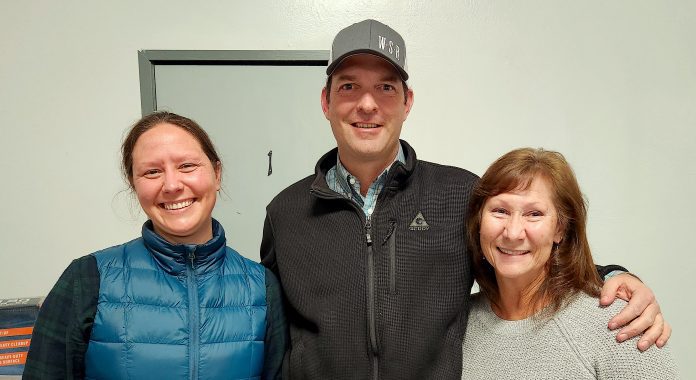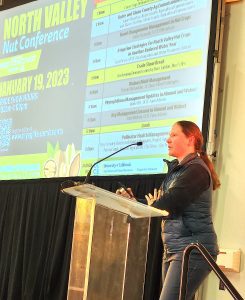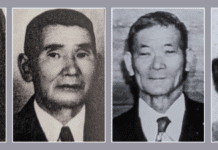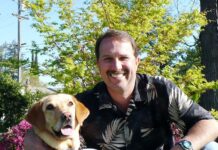
Northern Sacramento Valley nut growers have been excited to welcome new Orchard Crops Advisor Jaime Ott to the agriculture community as she joins the UCCE team.
With primary crop responsibilities to walnut, prune, almond and olive, Ott said she is thoroughly enjoying the opportunity to work with growers in Tehama, Shasta, Glenn and Butte counties.
“Having just recently started in this new position,” Ott said, “one of my goals, in general terms, is to be here as a resource for growers, pest control advisors and others in the profession, and to become that person that when people have an ag-related question, I’m their go-to person. Truly, that is the point of this position within UCCE.”
She went on to explain the idea of a UCCE orchard crop advisor position is to bring the university’s research to growers and others in the profession.
“Those are the ones really who need that knowledge and research information developed by the universities. Providing that knowledge and being the person answering those questions is what I want to become, what I am, and will be doing,” Ott said. “I know I have a lot to learn, but as I get more experience and as I meet more people, as more questions come my way and I have to research to answer those questions with the most current information, that is how my knowledge and experience will grow. It is such a benefit to have all the most up-to-date university data, research and information available to me, and that in turn becomes a benefit to those I am here to help.”
In addition, she recognizes all the knowledge and experience her fellow researchers and advisors have that she can tap into.
“That makes it possible for me to then share all of that knowledge, decades of experience and research, with the agriculture community where I am serving,” Ott said.
Engrained in Ag
Ott is finishing her Ph.D. from the UC Davis Department of Plant Pathology, where she has done work assessing walnut and almond rootstocks for resistance to crown rot caused by Phytophthora.
Ott has also been involved in testing whole orchard recycling in almonds and optimizing anaerobic soil disinfestation (ASD) as an alternative to fumigation when replanting almond orchards.
Her journey into agriculture has been a long one, she said.
“I consider myself an ecologist at heart,” she added. “I love being out in nature, and I actually spent my master’s degree working with some restoration projects in the Chesapeake Bay in West Virginia. Something that really made an impression on me during that experience was that we can spend a lot of time and money doing restoration work, however, I realized the real answer is working with farmers, ranchers and growers before the need for restoration even takes place.”
The experience gave Ott a unique perspective on the role of agriculture in conservation.
“So many people think that farming is the problem,” Ott said. “That couldn’t be further from the truth. We absolutely need everything growers, ranchers and farmers produce. To think we don’t is crazy.”
What she would like to see is for agriculture to become more efficient.
“The growers will be the first ones to tell you they would like to be as efficient as possible. No one wants to use more fertilizers or sprays than they absolutely have to. That’s money poorly spent,” she explains. “I think the sweet spot would be to have farming as perfectly efficient as possible. That really is what’s sustainable, is to make it truly efficient.”
That is one component of what brought Ott into the field of agriculture, finding ways to help farmers be as efficient as possible.

The other component came in the past eight years in California working with almond and walnut growers.
“As I have been interacting with growers and coming to understand them more and gaining a real respect for what they do, I have learned they care greatly about the ecosystem as a healthy ecosystem makes for better orchards and crops,” Ott added.
The last piece of the journey that brought Ott to her career of choice was spending two years in the Peace Corps working in Africa’s Zambia region.
“I did this after earning my master’s degree. I was working in the bush with rural farmers growing tilapia. That experience really brought home to me how important it is to bring knowledge and research out there to the person who really needs it. That is a crucial step that doesn’t happen all the time,” she said. “That is an absolutely necessary bridge.”
It is that bridge between university research and knowledge that Ott wants to foster.
“I want to be that bridge that gets that information to the people who have the boots on the ground, actually growing the food that feeds this country and more,” she said.
It is these experiences that have made Ott passionate about her career in agriculture.
“I want to make growing food sustainable for the grower and the future,” she added. “We want things in this field to be efficient. We want things to work well for the grower, and to do this, we have to continue research and providing them with the best data and information they can get, and making sure that information is accessible.”
Another key component, Ott believes, is sharing that information in a format that is understandable to the grower.
“Not through some scientific, academic paper that is difficult to understand. That information needs to be readily accessible and practical in presentation and application,” she said.
When not at work, Ott and her husband, Sean, enjoy backpacking.
“We have made a lot of backpacking trips in the Sierra’s around the Lake Tahoe area as that is where we were previously. We are both really looking forward to exploring the Trinity Alps, the Cascades, Lassen and the backpacking trails of the far North state,” she said.
Ott is also an avid gardener.
“Every year I plant a garden, usually a lot more than I can possibly eat and so we do a lot of canning with our bounty and taking bags of produce to my neighbors and friends. That’s a great feeling,” she added. “I’m even happy to answer gardening questions if they come my way.”
Another of the couple’s hobbies is cooking.
“We really try to be adventurous with our cooking,” Ott said. “We like to cook ethnic food we have never even heard of before. For instance, we recently made soup dumplings, which is an oriental dish of dumplings with soup inside the dumpling. We like to cook things such as that, different and new to us. And this hobby goes really well with our gardening, especially in the middle of the summer when you’re wondering what to do with 20 pounds of zucchini.”
Ott can be contacted at Cooperative Extension Tehama County, 1754 Walnut St., Red Bluff, CA 96080; by phone at (530) 527-3101; and by email at njott@ucdavis.edu.















